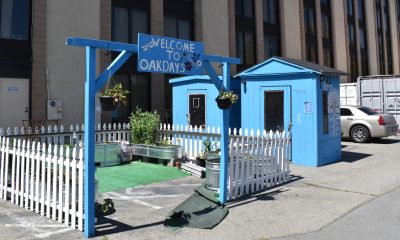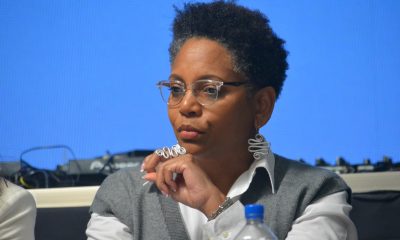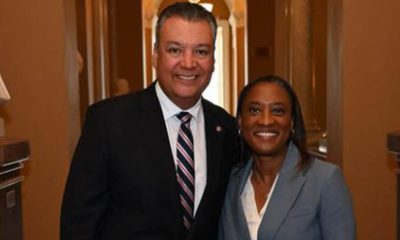City Government
California Lawmakers Want to Know Why Billions in Spending isn’t Reducing Homelessness
The state has spent billions of dollars on homelessness in recent years. So why is the crisis getting worse instead of better? That’s what a bipartisan group of California legislators is trying to get to the bottom of by calling for a first-of-its kind, large-scale audit of the state’s homelessness spending.

By Marisa Kendall
CalMatters
The state has spent billions of dollars on homelessness in recent years. So why is the crisis getting worse instead of better?
That’s what a bipartisan group of California legislators is trying to get to the bottom of by calling for a first-of-its kind, large-scale audit of the state’s homelessness spending.
The state has stepped up its involvement and investment in the crisis under Gov. Gavin Newsom’s leadership, allocating $20.6 billion toward housing and homelessness since 2018-19, according to the Legislative Analyst’s Office. But despite the influx of cash, during that time, the number of unhoused people in the state has increased by nearly a third — to more than 170,000 as of last year.
That discrepancy between what’s being spent in Sacramento and what voters see — tent cities in their neighborhoods — has many legislators clamoring for an accounting. They have instructed the state auditor to embark on a sweeping project that will analyze multiple state homelessness programs — as well as focus on homelessness spending in two cities — in an attempt to improve California’s response.
“What we’re doing is not working,” said Assemblymember Josh Hoover, a Republican from Folsom who co-authored the audit request with Democratic Sen. Dave Cortese of Santa Clara County. “And I think it’s important to get to the bottom of that and figure out where are we investing that is not getting a return on investment. And we need to stop spending money on the programs that are not working.”
The $743,400 audit, approved unanimously in the state’s legislative audit committee last month, will take about 5,000 hours of staff time and is likely to be complete by October, State Auditor Grant Parks said during the hearing. It will scrutinize the cost-effectiveness of as many as five state homelessness programs. The auditor has yet to reveal which ones, but Project Homekey — one of Newsom’s signature efforts to create homeless housing — likely will be one. And the audit will analyze spending in two California cities — San Jose and one other yet to be determined.
The analysis will focus on questions such as: How many people received services between 2020 and 2023? How much funding have San Jose and the other city received, and how has it been spent? How much of that money went toward administrative costs instead of services?
Newsom’s office wouldn’t weigh in on the pending audit, except to issue a statement: “This process is still in its early stages, and we will continue to closely monitor any future developments.”
Myles White, assistant secretary of legislation for the California Business, Consumer Services and Housing Agency, defended the state’s track record during the legislative hearing. “A lot of the progress we’ve made provides a really solid foundation for us to continue in the days ahead,” he said.
San Jose officials said they have used state funds effectively and efficiently, and have been transparent in their work. Local officials rallied at the state Capitol last week, demanding that the state give them an ongoing $3 billion a year to address homelessness.
Cortese began pushing for the audit after touring a massive homeless encampment on vacant land near San Jose’s airport. One of the largest in California, the camp was home to more than 400 people during the pandemic. What he saw shocked and appalled him: “Rodents running around your feet. Massive piles of trash. Tons of broken RVs and abandoned cars. Cars turned upside down with people living inside.”
When Cortese brought up the idea of a state audit, he says local officials told him while they had spent local money, they hadn’t used state funding to improve conditions or offer services at that encampment.
“Which to me just really begged the question: ‘What’s going on?'” Cortese said.
That camp has since been cleared; the Federal Aviation Administration had threatened to withhold airport funds from the city because the camp extended into flight paths. But the city couldn’t move everyone into housing or shelter, and some people have moved to another lot just across the street.
Past attempts at accountability
Cortese’s audit isn’t the first time California’s homelessness response has come under scrutiny. Earlier this year, the Interagency Council on Homelessness found the state spent nearly $10 billion on homelessness between 2018 and 2021 and served more than 571,000 people. But despite that effort, most of those people still didn’t get a roof over their heads.
And in 2021, a state audit of five local governments found that they did not always comply with federal regulations or follow best practices when responding to homelessness.
The new audit will be an “entirely different animal,” Cortese said, as it will go deeper into the state’s spending. Legislators hope it also will make specific recommendations as to how ineffective programs could be improved or even cut — something the Interagency Council’s report didn’t do.
The heightened scrutiny comes as Newsom has both ramped up spending and rolled out a series of new homelessness programs since the COVID-19 pandemic began. Those include Project Roomkey, which temporarily put elderly and medically compromised unhoused people up in hotels; Homekey, which gives cities and counties money to turn some of those hotels (and other buildings) into longer-term homeless housing; and the Encampment Resolution Grant program, which gives cities and counties money to clear homeless encampments and move occupants into housing and shelters.
It’s no surprise that Republicans would continue their critique of the liberal governor’s spending. But the recent involvement of Cortese and other Democrats signals the politics have shifted.
For example, Assemblymember Luz Rivas, a Democrat from the San Fernando Valley, is pushing her own accountability bill. Assembly Bill 799 would force the state to set specific goals for reducing homelessness, while also allowing funding to be reallocated away from local agencies that fail to meet their goals.
“We get asked by our constituents,” she said. “They ask ‘Where is this funding going to? Is it really being used effectively?'”
Even Newsom himself has advocated for more accountability. He recently began requiring that cities and counties submit “homeless action plans” before receiving state funding, and he briefly held $1 billion hostage after determining the plans they drafted weren’t ambitious enough.
During last month’s hearing, several legislators advocated for the auditor to choose cities in their own districts. Some made pitches for Los Angeles and Sacramento, while others pushed for smaller cities.
Gail Osmer, a San Jose advocate who led Cortese on the encampment tour that inspired the audit, spoke alongside the senator at the hearing. In an interview, she said she hopes the audit’s findings will be a wake-up call for her city.
Osmer has been critical of how the city cleared the airport encampment. Camp residents were promised services, such as free repairs for their cars and RVs, that many people never received, she said.
“People are not held accountable,” Osmer said. “Where’s the money going?”
Activism
Oakland Post: Week of May 8 – 14, 2024
The printed Weekly Edition of the Oakland Post: Week of May May 8 – 14, 2024
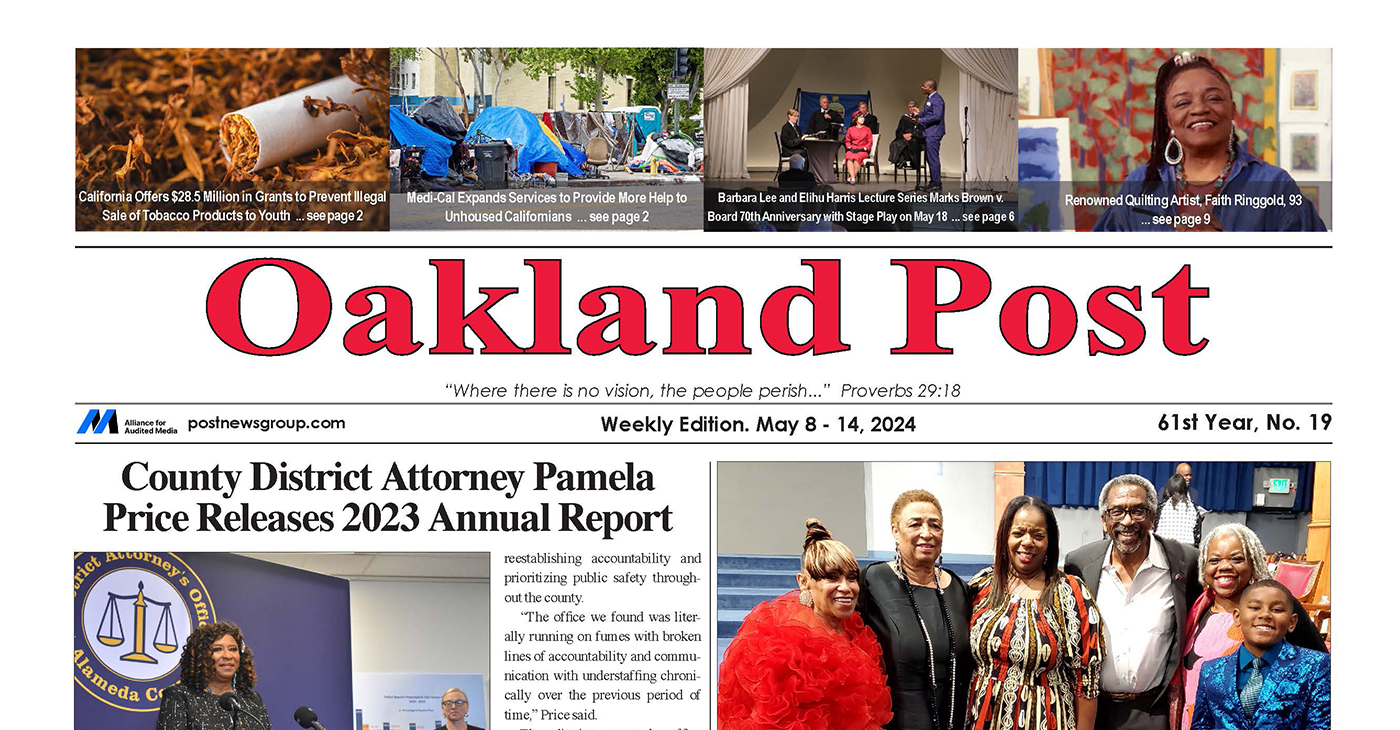
To enlarge your view of this issue, use the slider, magnifying glass icon or full page icon in the lower right corner of the browser window. ![]()
Activism
S.F. Black Leaders Rally to Protest, Discuss ‘Epidemic’ of Racial Slurs Against Black Students in SF Public School System
Parents at the meeting spoke of their children as no longer feeling safe in school because of bullying and discrimination. Parents also said that reported incidents such as racial slurs and intimidation are not dealt with to their satisfaction and feel ignored.

By Carla Thomas
San Francisco’s Third Baptist Church hosted a rally and meeting Sunday to discuss hatred toward African American students of the San Francisco Unified School District (SFUSD).
Rev. Amos C. Brown, president of the San Francisco NAACP and pastor of Third Baptist Church, along with leadership from local civil rights groups, the city’s faith-based community and Black community leadership convened at the church.
“There has been an epidemic of racial slurs and mistreatment of Black children in our public schools in the city,” said Brown. “This will not be tolerated.”
According to civil rights advocate Mattie Scott, students from elementary to high school have reported an extraordinary amount of racial slurs directed at them.
“There is a surge of overt racism in the schools, and our children should not be subjected to this,” said Scott. “Students are in school to learn, develop, and grow, not be hated on,” said Scott. “The parents of the children feel they have not received the support necessary to protect their children.”
Attendees were briefed last Friday in a meeting with SFUSD Superintendent Dr. Matt Wayne.
SFUSD states that their policies protect children and they are not at liberty to publicly discuss the issues to protect the children’s privacy.
Parents at the meeting spoke of their children as no longer feeling safe in school because of bullying and discrimination. Parents also said that reported incidents such as racial slurs and intimidation are not dealt with to their satisfaction and feel ignored.
Some parents said they have removed their students from school while other parents and community leaders called on the removal of the SFUSD superintendent, the firing of certain school principals and the need for more supportive school board members.
Community advocates discussed boycotting the schools and creating Freedom Schools led by Black leaders and educators, reassuring parents that their child’s wellbeing and education are the highest priority and youth are not to be disrupted by racism or policies that don’t support them.
Virginia Marshall, chair of the San Francisco NAACP’s education committee, offered encouragement to the parents and students in attendance while also announcing an upcoming May 14 school board meeting to demand accountability over their mistreatment.
“I’m urging anyone that cares about our students to pack the May 14 school board meeting,” said Marshall.
This resource was supported in whole or in part by funding provided by the State of California, administered by the California State Library via California Black Media as part of the Stop the Hate Program. The program is supported by partnership with California Department of Social Services and the California Commission on Asian and Pacific Islander American Affairs as part of the Stop the Hate program. To report a hate incident or hate crime and get support, go to CA vs Hate.
Bay Area
Mayor London Breed: State Awards San Francisco Over $37M for Affordable Housing
On April 30, Mayor London N. Breed announced San Francisco has been awarded more than $37.9 million in funding from the California Department of Housing and Community Development (HCD) as part of the State’s Multifamily Housing Program (MHP). The HCD loan will provide the final funding necessary for development of Casa Adelante – 1515 South Van Ness, a 168-unit affordable housing project located in San Francisco’s Mission District.
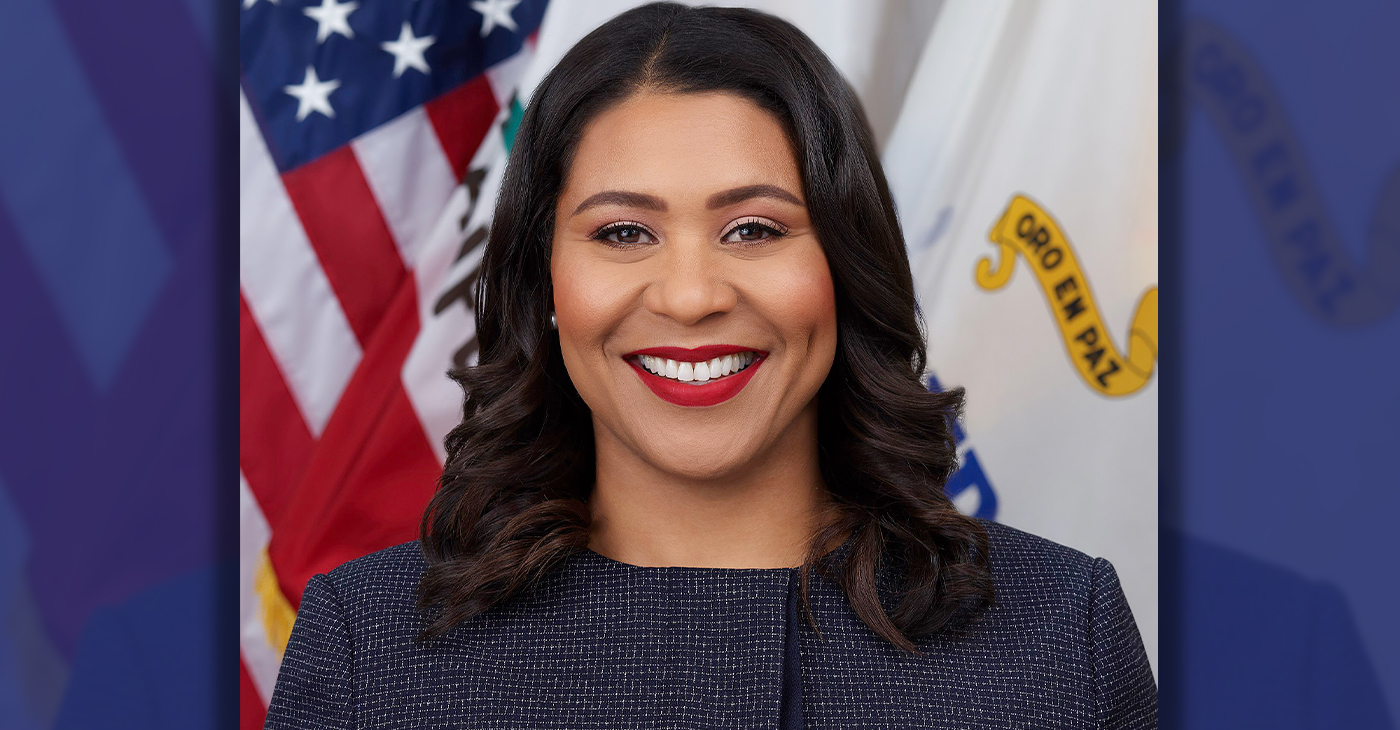
By Oakland Post Staff
On April 30, Mayor London N. Breed announced San Francisco has been awarded more than $37.9 million in funding from the California Department of Housing and Community Development (HCD) as part of the State’s Multifamily Housing Program (MHP).
The HCD loan will provide the final funding necessary for development of Casa Adelante – 1515 South Van Ness, a 168-unit affordable housing project located in San Francisco’s Mission District.
The new development at 1515 South Van Ness Ave. will provide 168 affordable homes to low-income families, formerly homeless families, and persons living with HIV earning between 25-80% of the San Francisco Area Median Income (AMI).
In addition, the project is anticipated to provide family-friendly amenities and ground floor community-serving commercial spaces that preserve the prevailing neighborhood character of the Calle 24 Latino Cultural District.
“This funding unlocks our ability to move on building affordable housing units for families in San Francisco at a crucial time. We understand the level of need for more housing that is accessible, and like the state, the city continues to face a challenging budget cycle,” said Breed. “1515 South Van Ness is a good example of what can be achieved in San Francisco when you have strong community partnerships and an unwavering commitment to deliver on critical needs for our residents.”
“From the beginning of my term as Supervisor, I have fought to bring affordable housing to 1515 South Van Ness” said Supervisor Hillary Ronen. “In the interim, the site has been utilized for homeless services and shelter, and I am thrilled that HCD has recognized the value of this development, and we are finally ready to break ground and bring 168 affordable homes to low income and formerly homeless families in the Mission.”
Owned and occupied by McMillan Electric Company until 2015, the City and County of San Francisco purchased 1515 South Van Ness Avenue in June 2019 with the intent of developing new affordable housing.
In November 2020, the San Francisco Mayor’s Office of Housing and Community Development (MOHCD) released a Multi-site Request for Qualifications (RFQ) seeking qualified developers to build affordable housing on the site, and subsequently selected Chinatown Community Development Corporation (CCDC) and Mission Economic Development Agency (MEDA) in May 2021 to develop the site.
The project is expected to begin construction in winter 2025.
“A strong, long-term push by Mission advocates to make this site 100% affordable is now paying off, with 168 family units that include services and childcare. People of color communities know what they need, and we are excited to be in partnership with a team, consisting of MEDA, CCDC, and MOHCD, that listens,” said Malcolm Yeung, Executive Director at CCDC.
“We are excited to be in partnership with CCDC, yet again, and for the opportunity to develop intergenerational affordable housing in the City’s Mission District,” said Luis Granados, executive director at MEDA.
Increasing housing affordable to lower-income and vulnerable residents is a key priority in the City’s Housing Element which calls for additional funding for affordable housing production and preservation, as well as Mayor Breed’s Housing for All Executive Directive that sets out the steps the City will take to meet the bold goal of allowing for 82,000 new homes to be built over the next eight years.
Tuesday’s funding announcement emphasizes the importance of regional and state collaboration in order to reach our housing and climate goals.
“We are thrilled—not just to bring a project of this size to a community with great need — but to do so with community-based developers and their partners who understand the neighborhood and sensitivities around cultural preservation,” said HCD Director Gustavo Velasquez.
-

 Community3 weeks ago
Community3 weeks agoFinancial Assistance Bill for Descendants of Enslaved Persons to Help Them Purchase, Own, or Maintain a Home
-

 City Government7 days ago
City Government7 days agoCourt Throws Out Law That Allowed Californians to Build Duplexes, Triplexes and RDUs on Their Properties
-

 Activism2 weeks ago
Activism2 weeks agoOakland Post: Week of April 24 – 30, 2024
-

 Business4 weeks ago
Business4 weeks agoV.P. Kamala Harris: Americans With Criminal Records Will Soon Be Eligible for SBA Loans
-

 Activism4 weeks ago
Activism4 weeks agoOakland Post: Week of April 10 – 16, 2024
-

 Community4 weeks ago
Community4 weeks agoAG Bonta Says Oakland School Leaders Should Comply with State Laws to Avoid ‘Disparate Harm’ When Closing or Merging Schools
-

 Community3 weeks ago
Community3 weeks agoRichmond Nonprofit Helps Ex-Felons Get Back on Their Feet
-

 Community3 weeks ago
Community3 weeks agoOakland WNBA Player to be Inducted Into Hall of Fame

